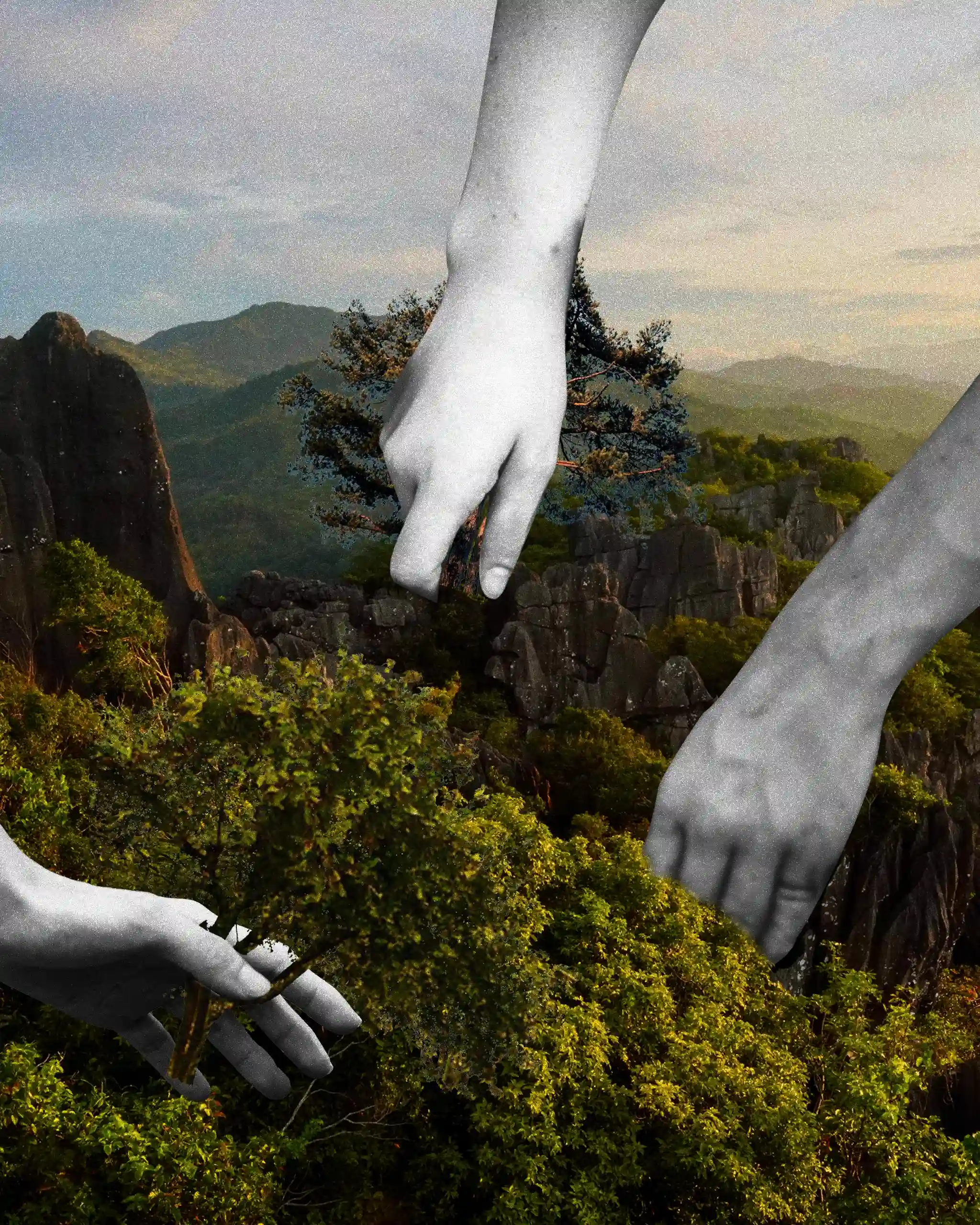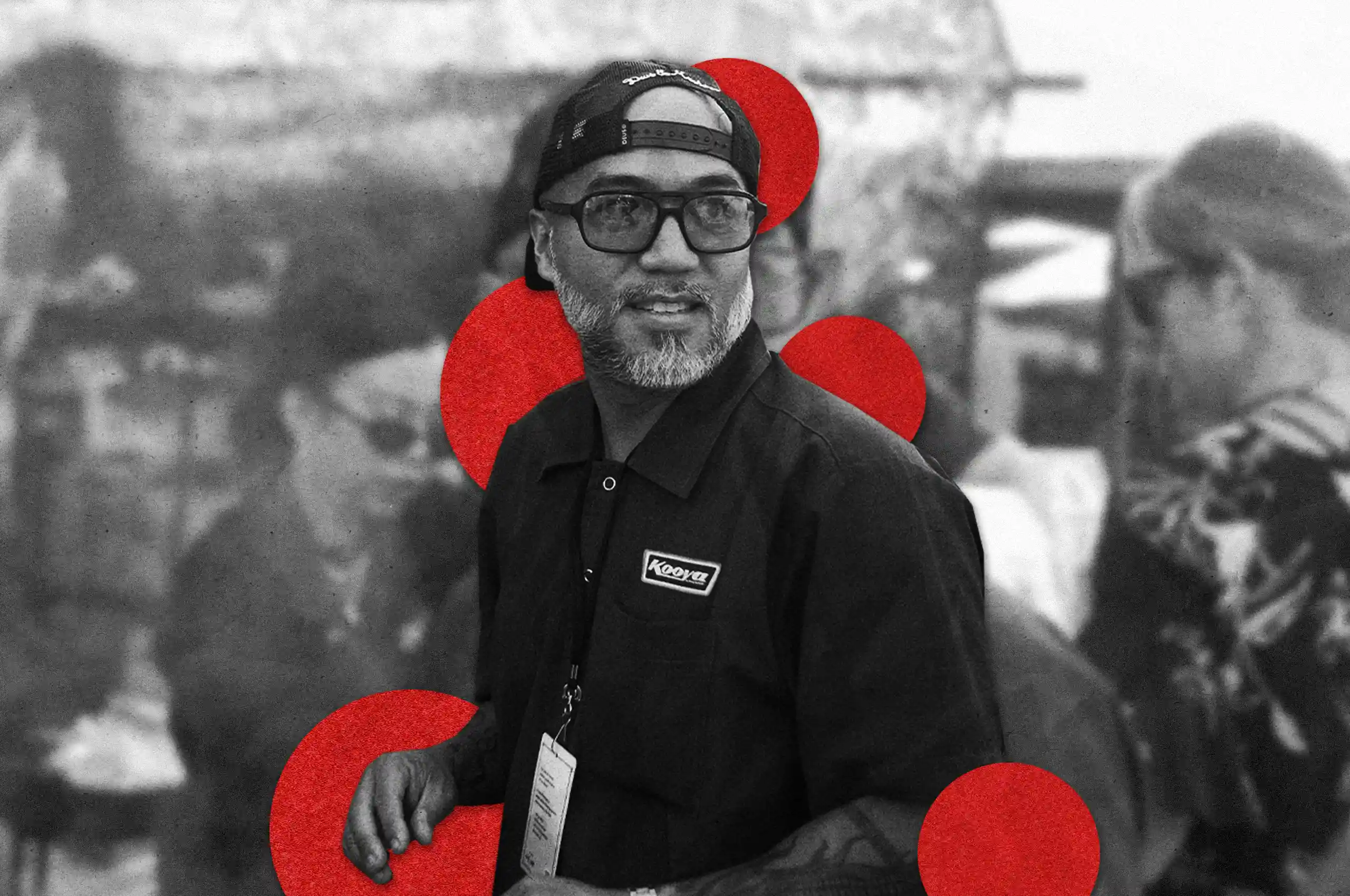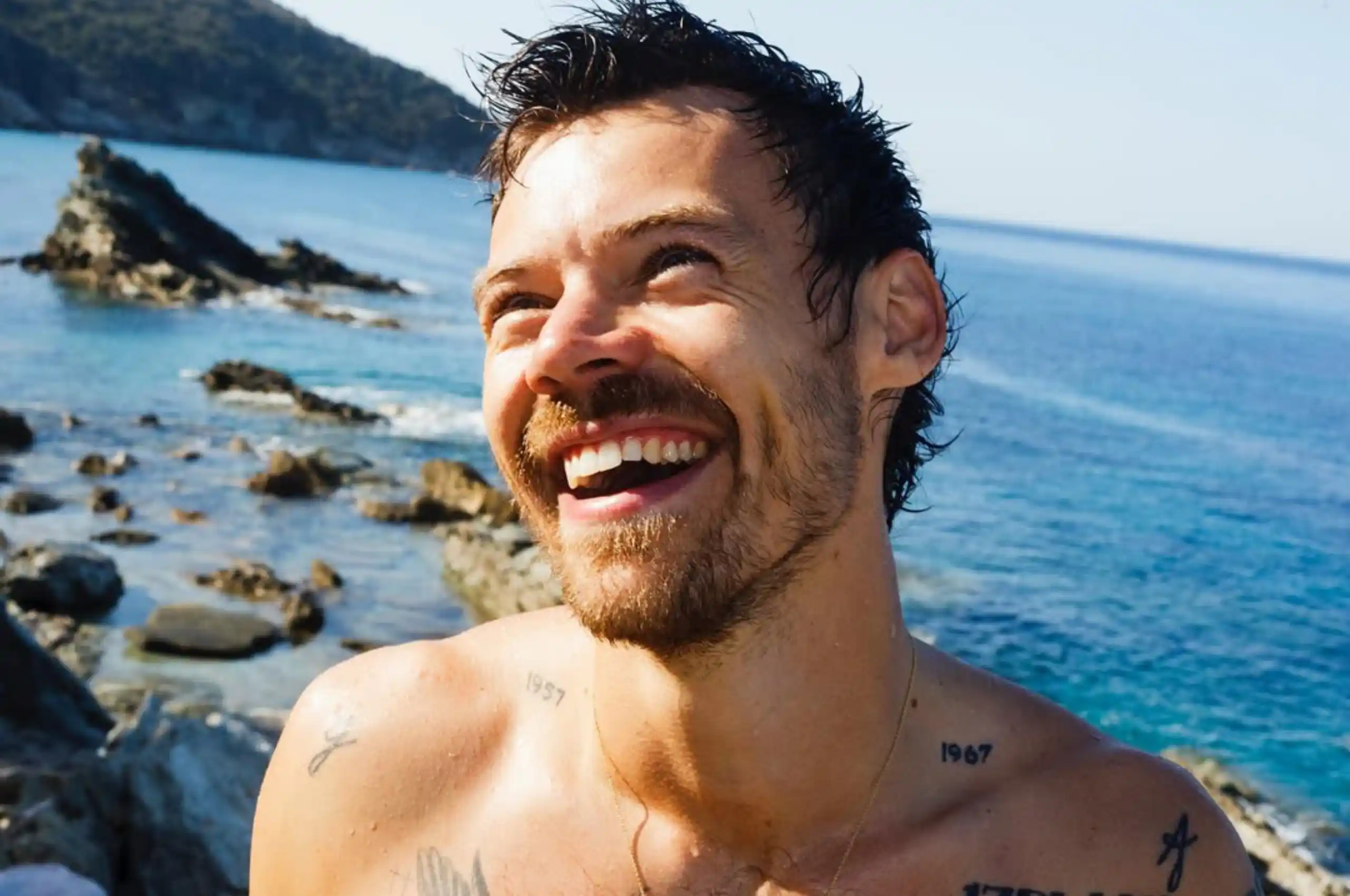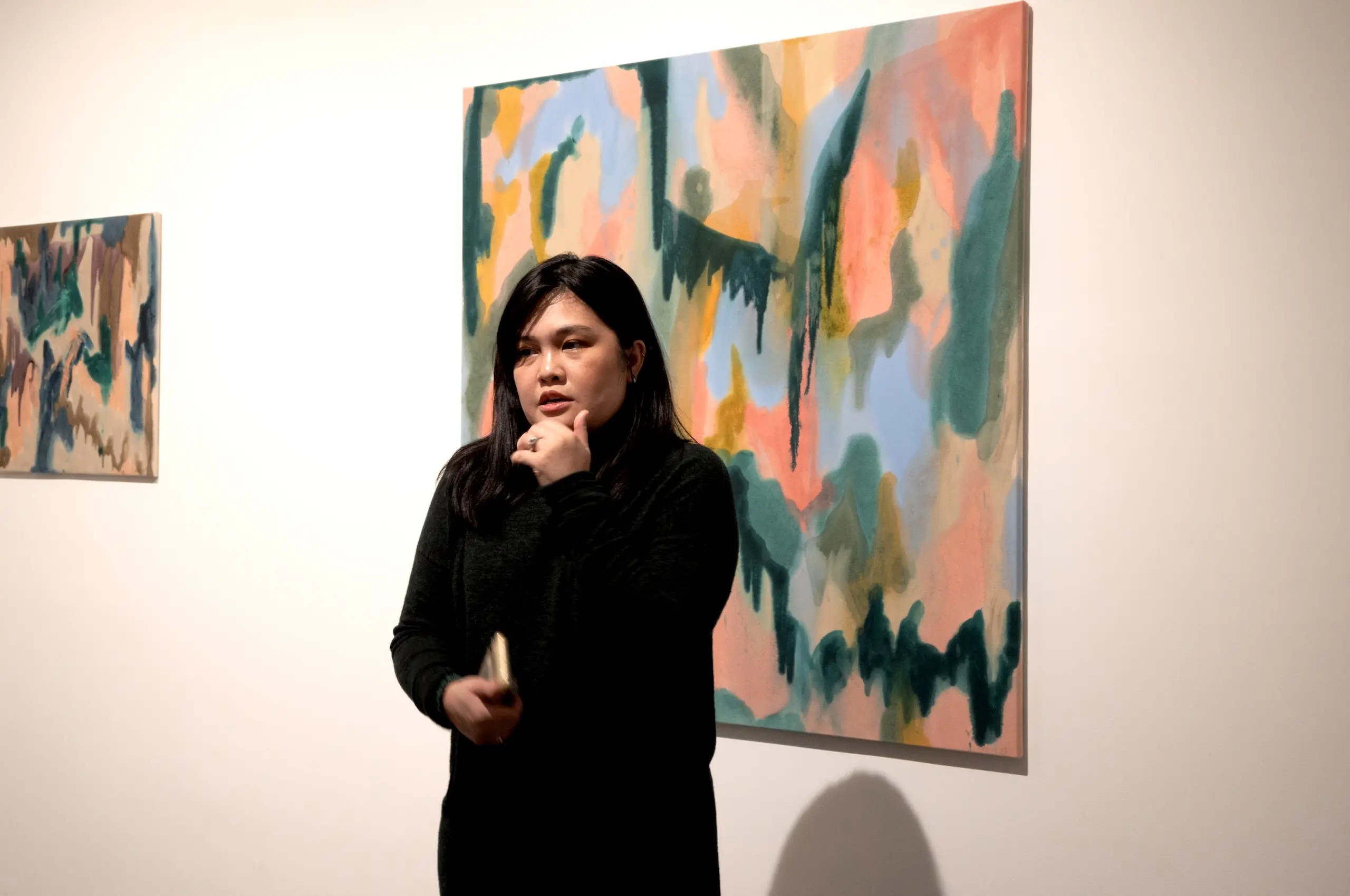When I was eight years old, I stood atop the limestone cliffs of Rizal and saw a wounded, bare landscape destroyed by quarrying. These were my weekends visiting what is now the Masungi Georeserve. It was barren then, mostly just grass, where goats were the only animals that could graze. There were hardly any trees to shield you from the sun. Watching the mountains in the horizon disappear, one by one, was a painful part of my childhood. It is the feeling that has fueled my life’s work.
But my father saw Masungi’s potential. For nearly three decades, he worked to rally a team together to save it. A group of people who sacrificed resources and opportunities to revive this land others had abandoned. Over the years, we worked with national scientists to do research, the military and government forces to fend off violence, and indigenous people’s organizations to protect the land. We worked with lawyers and legislators to lobby for better laws. We worked in tandem with other protected areas to build capacity and support. Together, we watched the forest come back to life.
Without their work, there would be no Masungi to defend today. At that point, I thought we were on a very simple path — one built on the idea that all of us were aligned in the shared goal of protecting the forests.
Yet in March 2025, the Department of Environment and Natural Resources (DENR) unilaterally cancelled our Joint Venture Agreement, one of the foundational legal safeguards protecting Masungi’s restored forests. This agreement was the jump-off point for the Masungi Geopark Project, a pioneering reforestation project with the Masungi Georeserve Foundation. The landmark project is to push for the restoration of the upper reaches of the notoriously deteriorated Upper Markina watershed, supporting 20 million people, at no cost to the government.
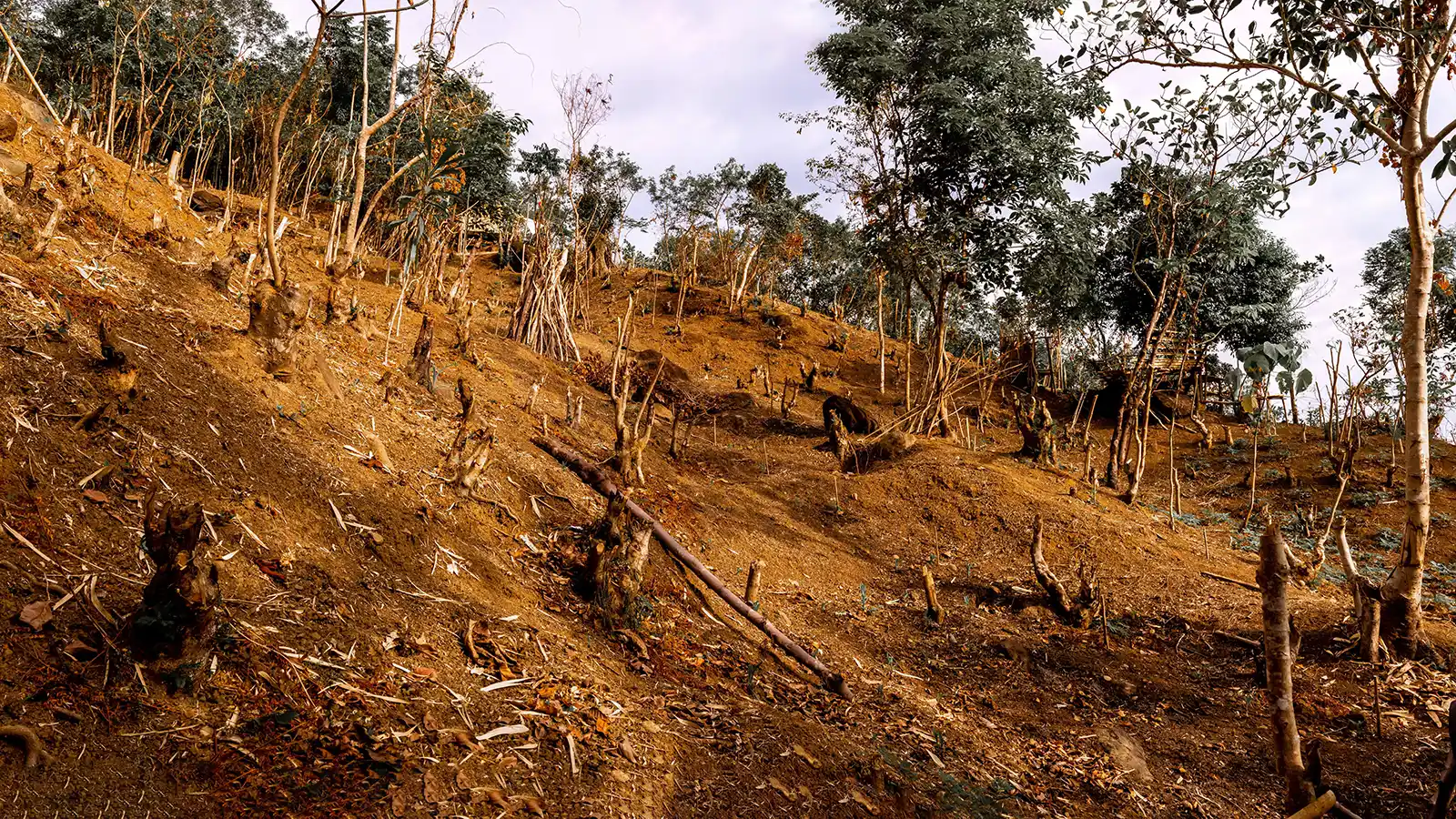
I found out about the cancellation through a news report. There was no dialogue, no transition plan, not even a meeting. A decision about the forests that I and so many people had regrown over the years was made without us.
Nilbert, one of our rangers, sat in stunned silence before quietly asking, “Why?” Nilbert is an indigenous graduate who chose to serve in Masungi despite having other paths, believing — as we all do — that change only happens when we stand together. Our community partners were equally shocked. The decision struck at the heart of our work, dismantling the legal safeguards we fought for years to establish. It felt like a profound betrayal, not just of our agreement, but of the environment itself.
The cancellation exposed a fundamentally broken system that we are still using to govern protected areas in the Philippines.
The Performance of Participation
In recent years, conservationists doing the actual, on-the-ground work of protection are being drowned out by quarrying operations, illegal settlers, and speculative developers — all treated as equal “stakeholders” in the fate of the areas they seek to exploit.
“Stakeholders” is a word I hear far too often in protection of these environmental destroyers. In fact, the cancellation of the Joint Venture Agreement was paraded in the media as in favor of a more “multi-stakeholder approach.” At first read, it sounds sensible. Why not involve more stakeholders?
But who are the stakeholders that are being involved? Why didn’t the scientists, or the forest rangers, or the indigenous communities that all worked on the reforestation know about this? Why didn’t we?
When our team dug deeper, we found out who the “stakeholders” were: Big business and environmental offenders.
This is how the phrase “multi-stakeholder approach” has been stealthily attacking us. Instead of being an authentic form of democratic participation, it has created a system where illegal occupants get an equal voice alongside legal conservationists. It has become an umbrella term, a cover for greenwashing on a national level.
When Allies Become Targets
The DENR’s cancellation of our agreement came after we relentlessly exposed and opposed illegal activities in the Upper Marikina Watershed. This has included dubious land claims over thousands of hectares of protected watershed for mineral production; fencing off parts of the georeserve under the guise of “protection” while cutting down trees our team had planted, and; “green” projects like wind farms encroaching on fragile ecological systems. Some land dealers even pose as farmers allegedly affiliated with “people’s organizations,” legitimizing the so-called “multi-stakeholder approach” while simultaneously setting up resorts with swimming pools inside the protected area.
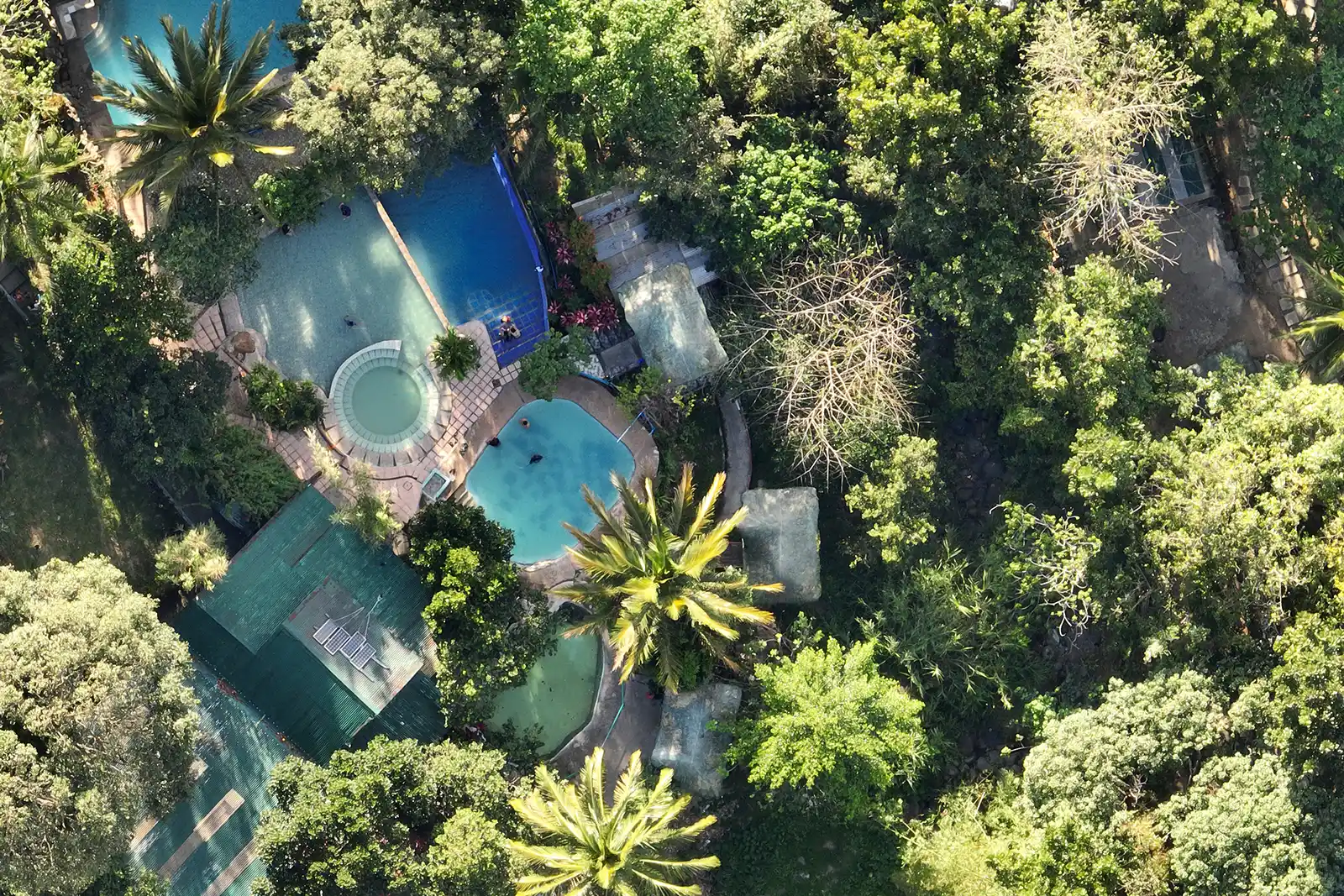
The so-called multi-stakeholder process gives cover to violators, treating them as legitimate voices. Meanwhile, real decisions to exploit the land are made without public input or transparency on information needed to make knowledgeable decisions. In effect, the “democratic process” becomes a system that can be switched “on” to block legitimate conservation and switched “off” to fast-track environmental destruction.
The real stakeholders in protected areas are the 20 million people who depend on the Upper Marikina Watershed for their water, the communities that need flood protection, and the future generations who will inherit whatever we leave behind. They are the ones who suffer when the Upper Marikina Watershed is threatened, yet none of them are sitting in these “multi-stakeholder” meetings, voting on what happens next, nor are they being consulted in multi-sector processes.
As environmental defenders, the harassment we face is relentless. I’ve been told by goons with a violent track record of extortion that if we go past a certain area, they will “not hesitate to hunt us down.” I was personally told they would drag me out if they saw me. My personal details, as well as my sister’s, have been published online in coordinated disinformation campaigns designed to intimidate and paint us as obstacles to progress or as the bad actors.
Our rangers face the most direct threats. They patrol and are met with armed men who have fenced off huge swaths of the restoration site. In 2021, two of our rangers were shot and nearly killed while they slept in their station.
The Philippines consistently ranks as Asia’s deadliest country for environmental defenders. At the World Economic Forum, I shared these stories with Indigenous leaders from the Amazon and rangers from the Congo Basin. Their experiences were hauntingly similar. Yet in our own country, defenders are treated as enemies rather than the government’s most crucial allies.
An End to the Charade
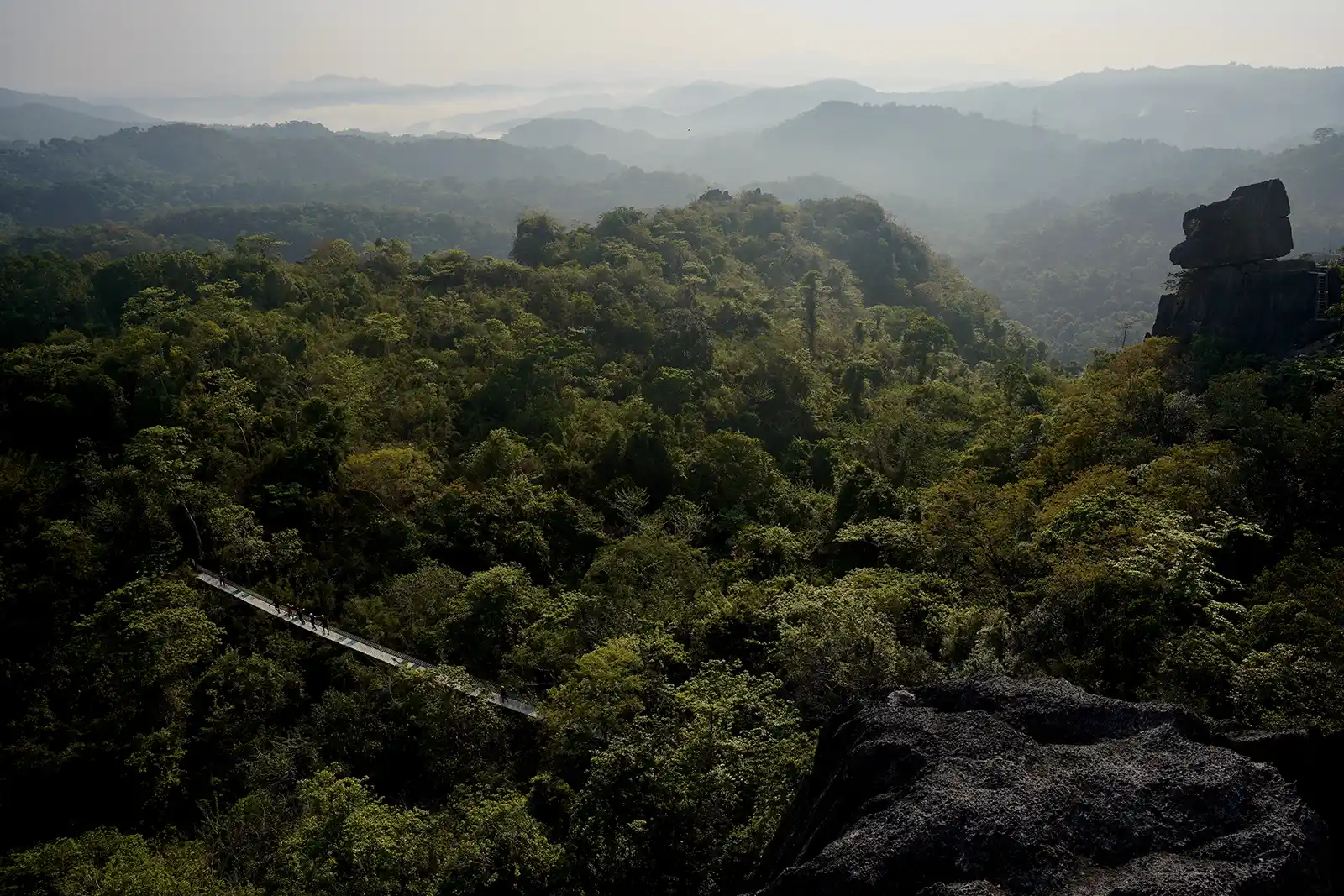
Our motion for reconsideration is now with the new DENR leadership, and we are hopeful that we can get back on the path to a future with true stakeholder inclusion.
Despite the announced cancellation, Masungi’s forests still breathe. Our rangers still patrol. But for Philippine conservation to succeed, we need to stop pretending that illegal occupation and legal protection deserve equal representation in governance.
We need governance systems that prioritize ecological integrity over political convenience, that treat conservation as a public good rather than a private negotiation. We need a system that recognizes the difference between legitimate stakeholders and illegal occupants.
The growing solidarity between principled public servants, genuine community organizations, and committed conservationists shows this is possible. But it requires abandoning the fiction that democracy means giving destroyers a voice, instead of holding them accountable for what the law already clearly provides against them.
In protected areas, there should be no balance between legal conservation and illegal occupation. There should be no multi-stakeholder legitimization of destruction.
There should be protection.


